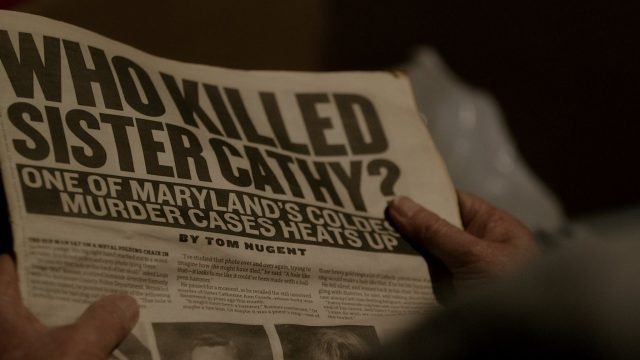I have a two-floor house, and sometimes, when I’m in the middle of yet another documentary on Netflix, the kid will come downstairs and say, “what are you watching?”
As often as not, the answer will be some variation of, “I’m watching a story about someone who got killed,” or defrauded, or kidnapped. And the next question, of course, is “…but why are you watching that?”
The answer to that is, of course, “because I want to, leave me alone.”
But in all seriousness, I have watched and read true crime since I was a kid: Forensic Files, which taught me how long it can take to put clues together (but also, erroneously, treated bite mark evidence as credible), the work of Ann Rule, former co-worker of Ted Bundy; whatever lurid covers caught my eye at the local used bookstores.
I’m not going to pretend that my interest in true crime is wholly altruistic. I’m well aware that some of the impulse to read and watch this stuff is exactly what makes us slow down at car accidents: a combination of What happened? and How did it happen? with a nasty side of And just how bad does it look? I don’t think there’s any one answer for why people find true crime appealing, and some of the answers are…well, nothing to be proud of.
But there is one other aspect to true crime that I believe is overlooked, and that’s the little flame of hope at the bottom of the Pandora’s box of whatever crime story I’m currently immersed in. The 2017 Netflix docuseries The Keepers, an utterly raw and heartbreaking account of the disappearance and murder of nun Cathy Cesnik, is probably the best example I have of this.
Cathy Cesnik was a bright spirit, and her death left a hole in many lives at the Baltimore-area Catholic school she taught at. We learn that Sister Cathy had discovered sexual abuse at the school, and planned to do something about it. The question the documentary examines is if she was killed to guarantee her silence, and there are no clear answers. Decades after her death, several of her former students are still working to find her killer, though it’s likely too late to bring anyone involved in her death to justice. The series follows their stories, along with those of several women who allege assault at the school, by multiple priests and others (no one was ever charged, though the Archdiocese of Baltimore has settled with at least sixteen women, for close to half a million dollars). Together, they try to piece through what happened to Sister Cathy, and what they did–and didn’t–notice in their own high school careers.
These women drive the plot and revelations of The Keepers: they are, as the title indicates, the keepers of Cathy Cesnik’s memory and the drive to find justice, or at least a full accounting, for what happened to her. Abbie Schaub and Gemma Hoskins have been working this case for years, for no other reward than to do right by a woman who had meant so much to them when they were teens. Multiple women came forward publicly, including Teresa Lancaster and Jean Werner, who are interviewed in gut-wrenching detail, putting their reputations on the line. And through the heartbreak and sorrow and anguish these women have suffered, they reached out to each other and found strength there.
The Keepers is not an easy watch. It is the stuff of nightmares at times, and the institutional forces Abbie, Gemma, Teresa, Jean and so many others face seem overwhelming. But through it all, these women keep learning, keep trying, and refuse to give up. They are real life heroes: brave, tough, and relentless. And that, I think, is one of the reasons I’ll never be able to quit true crime: a chance to meet those who faced evil and kept going, and who found the strength to fight back.
For more information on this story in particular, I highly recommend Buzzfeed’s (spoiler-packed) The Women of The Keepers Aren’t Afraid of the Truth. If you’re wondering about watching the show as a survivor, this website may be helpful.

